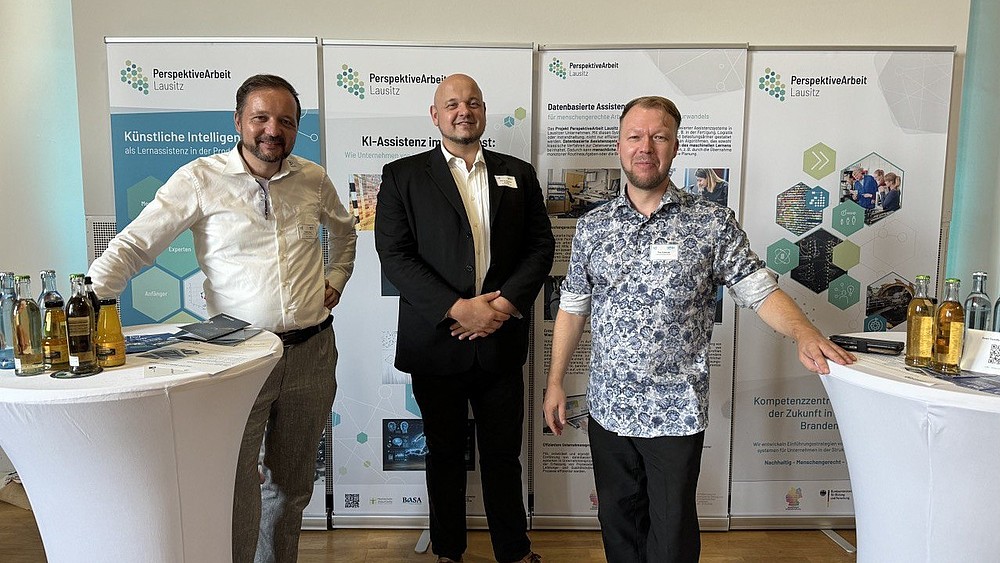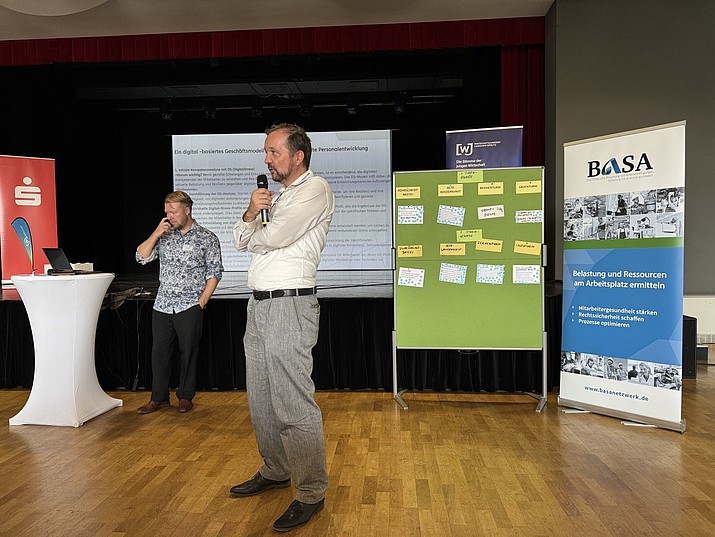At the Unternehmerforum Oberlausitz (UFO), HSZG highlights the benefits of artificial intelligence for small and medium-sized enterprises and explains why its introduction is often challenging.

AI applications are of great importance for small and medium-sized enterprises (SMEs) because the use of artificial intelligence comes with numerous promises. For this reason, the "Digitalstress" working group and the team from the PAL project (Perspektive Arbeit Lausitz) were active in several program items at the Unternehmerforum Oberlausitz (UFO) on 5 September at UFO 2024 in Bautzen. AI should offer advantages that help SMEs in particular to remain competitive and increase their efficiency.

The Digital Stress working group at Zittau/Görlitz University of Applied Sciences looks at the interaction between people, technology and organization (MTO) from an ergonomic perspective and helps companies prepare for and support change processes. The introduction of AI tools usually goes wrong if the organization and people are not involved and processes in the value chain are not taken into account. When AI implementations fail, the following aspects are usually forgotten: Preparing employees, the organization and work processes is crucial before introducing Artificial Intelligence (AI) to ensure a successful integration. Here are some important reasons:
The benefits of AI can only be realized more quickly if employees and processes are well prepared. A lack of preparation often leads to a delay in productivity and to the technology's potential not being fully exploited. Overall, thorough preparation ensures that the introduction of AI is not perceived as a disruptive factor, but as a helpful innovation. This promotes acceptance, increases efficiency and contributes to successful integration into the company. In large corporations, there are entire departments dedicated to the preparation and implementation of AI in the organization that manage the far-reaching change process. SMEs usually do not have their own experts, so it is good that the Zittau/Görlitz University of Applied Sciences has a project group that offers concrete support specifically for regional companies.